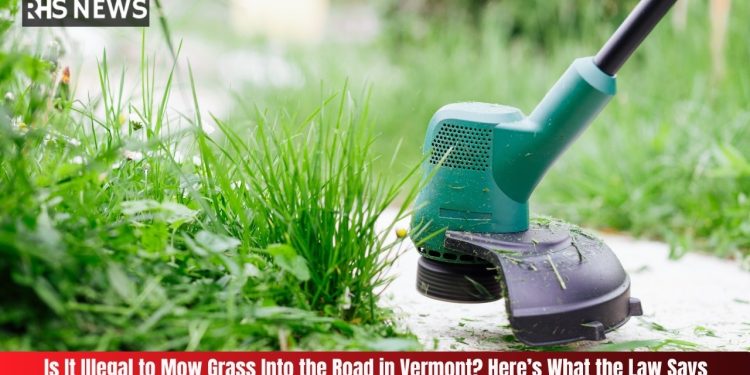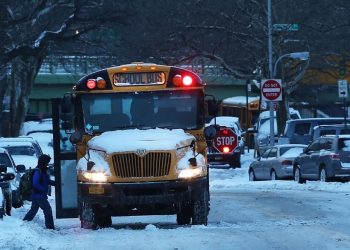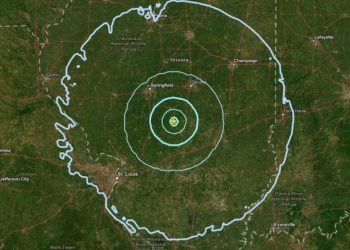Lawn care is a common activity throughout Vermont. However, one seemingly minor aspect—blowing or mowing grass clippings into the road—can have significant legal and safety ramifications. While not all residents are aware, Vermont has specific statutes that address the issue, and violating these laws can lead to fines and liability for accidents. Additionally, grass clippings on the road pose serious hazards to motorists, especially motorcyclists, and can negatively impact local ecosystems and city infrastructure.
Vermont Law: Roadside Mowing and Grass Clippings
This Article Includes
Vermont law is clear regarding the management of vegetation along town highways and public right-of-ways. According to Vermont Statutes, a person other than the abutting landowner or municipality must not cut, trim, remove, or otherwise damage grasses or shrubs within the limits of a town highway without first obtaining consent from the relevant local legislative body. If you mow grass in such a way that it ends up on a roadway and have not received prior consent, you may be subject to legal penalties.
Specifically, Vermont’s statute (§902) states that anyone—other than the agency, abutting landowner, municipality, or tree warden—who willfully or maliciously damages grasses, shrubs, or vines within highway limits can be fined between $10 and $100 per offense unless prior written consent is obtained. The same statute applies to grass clippings left after mowing.
Hazards Caused by Grass Clippings on Roads
Grass clippings are composed mainly of water, making them slippery and hazardous when they accumulate on hard surfaces like roads. This creates what experts liken to a “sheet of ice” for vehicles and especially motorcyclists. Even dry clippings can significantly reduce traction, causing skidding and loss of control.
Dangers include:
-
Sudden skids or loss of control, especially for two-wheeled vehicles.
-
Reduced visibility of road hazards, potholes, and markings.
-
Accidental lane changes or abrupt swerving, increasing crash risk.
Motorcyclists are at particular risk given their need for tire-road contact for stability. Grass clippings on curves and corners can be especially treacherous, leading to unexpected and sometimes fatal accidents.
Motorcycle and Road Accident Statistics
Motorcycle safety experts estimate that hundreds of motorcycle accidents occur nationwide each year due to grass and other debris on roads. Between 2004 and 2014, more than 4,000 people died annually in motorcycle accidents in the U.S., with a proportion attributed to loss of traction from litter such as grass clippings. In specific states, like Illinois, fines for causing motorcycle accidents due to grass clippings can be up to $1,500 for first-time offenders.
Key Statistics:
-
Grass clippings reduce tire traction, statistically increasing the likelihood of accidents, especially on wet roads.
-
Fatal motorcycle accidents annually: over 4,000 per year (2004-2014, US data).
-
Hundreds of crashes each year are directly linked to road debris like grass clippings.
Penalties and Liability in Vermont
Violating Vermont’s lawn mowing and roadside maintenance statutes may result in fines between $10 and $100 for each offense. Liability extends beyond fines: If someone is injured in an accident because of grass clippings left on the roadway, the person responsible may face civil legal actions for damages, especially if negligence is proven.
Municipalities typically manage roadside mowing as part of maintenance, but abutting landowners also share responsibility for the safe disposal of yard waste. If an accident is caused due to improperly disposed clippings, both the mower and property owner could be held liable, depending on the circumstances.
Environmental Impact: Water Quality and Drainage
Grass cuttings in the road can clog storm drains, contributing to flooding, property damage, and increased maintenance costs for towns. Besides safety, they impact water quality by promoting algae growth and introducing pollutants into waterways.
Environmental risks:
-
Clogged storm drains and increased flooding.
-
Water pollution and heightened costs for municipal infrastructure.
-
Negative effects on aquatic ecosystems and increased risk of waterborne illnesses.
Safe Practices for Mowing Grass near Roads
To stay within the law and avoid dangerous situations, follow these guidelines:
-
Mow grass so clippings stay within your property or yard.
-
Use mowing attachments or techniques that direct clippings away from public roads.
-
Clean up any grass clippings that inadvertently reach the street immediately after mowing.
-
Stay informed about local regulations—some towns may have stricter ordinances with higher penalties.
Adhering to proper mowing practices protects other road users and helps maintain a clean, safe, and environmentally friendly community.
Conclusion
Mowing grass or blowing clippings into the road in Vermont is not only illegal without appropriate consent but also carries real dangers for motorists, particularly motorcyclists. Violators may face fines and liability for accidents, and there are significant environmental risks associated with clippings washing into storm drains. To protect safety and comply with state law, always mow responsibly, keep clippings off the road, and manage yard waste appropriately.
Residents and landscapers must stay aware of local statutes and understand that what seems like a minor lawn care practice can have serious—and costly—consequences for themselves and their community.









